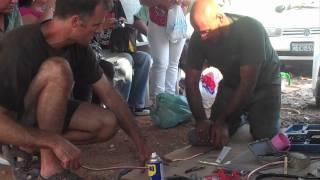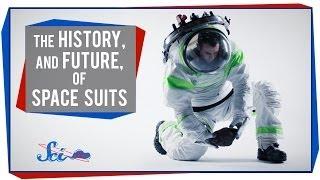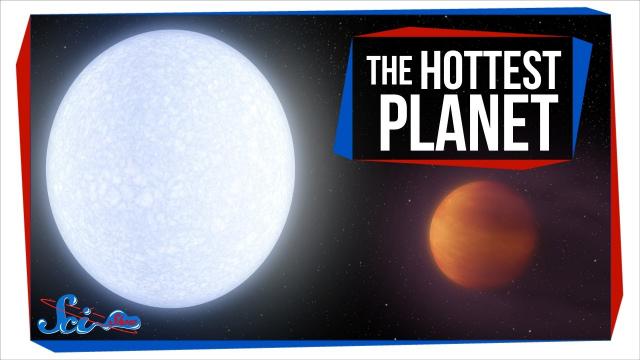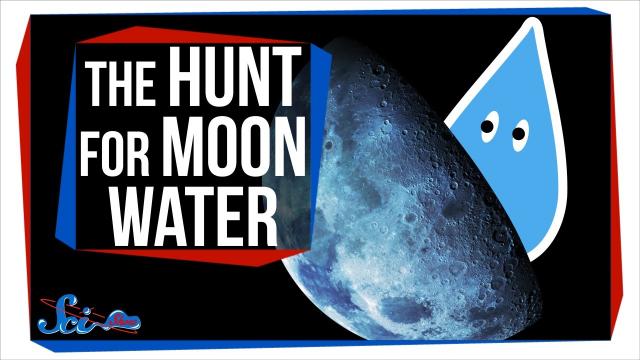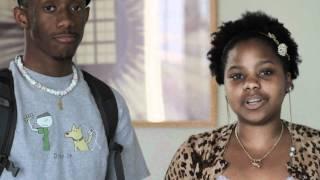Time Travel, Teleportation & Science
Time travel is the concept of moving between different points in time in a manner analogous to moving between different points in space, generally using a theoretical invention, namely a time machine. It has a commonly recognized place in philosophy and fiction, but has a very limited application in real world physics, such as in quantum mechanics or wormholes.
Although the 1895 novel The Time Machine by H. G. Wells was instrumental in moving the concept of time travel to the forefront of the public imagination, The Clock That Went Backward by Edward Page Mitchell was published in 1881 and involves a clock that allowed three men to travel backwards in time.[1][2] Non-technological forms of time travel had appeared in a number of earlier stories such as Charles Dickens' A Christmas Carol. Historically, the concept dates back to the early mythologies of Hinduism (such as the Mahabharata), Buddhism, and Islam through ancient folk tales. More recently, with advancing technology and a greater scientific understanding of the universe, the plausibility of time travel has been explored in greater detail by science fiction writers, philosophers, and physicists.
Teleportation, or Teletransportation, is the theoretical transfer of matter or energy from one point to another without traversing the physical space between them. It has a commonly recognized place in science fiction literature, film, and television, but as yet has a very limited application in real world physics, such as quantum teleportation or the study of wormholes.
Science (from Latin scientia, meaning "knowledge") is a systematic enterprise that builds and organizes knowledge in the form of testable explanations and predictions about the universe. In an older and closely related meaning, "science" also refers to a body of knowledge itself, of the type that can be rationally explained and reliably applied. A practitioner of science is known as a scientist.
In modern usage, "science" most often refers to a way of pursuing knowledge, not only the knowledge itself. It is also often restricted to those branches of study that seek to explain the phenomena of the material universe.
Source : Wikipedia
-
04:02

The Greatest Failed Experiment Ever
Added 736 Views / 0 LikesThe Greatest Failed Experiment Ever
-
02:30

The heart of the matter
Added 464 Views / 0 LikesIrene Chen is a third year PhD student at MIT working to advance machine learning to help doctors and other clinicians improve health care. With her supervisor, David Sontag, and Boston-area hospitals, Chen is taking on the challenge of heart failure. Aft
-
04:32

The Heartbeat of Campus: MIT's Central Utilities Plant (CUP)
Added 467 Views / 0 LikesIn 1916, MIT built an on-site steam and electrical power plant to serve its new campus. A state-of-the-art facility for that era, the plant represented MIT’s commitment to cleaner, more efficient generation of energy. A century later, MIT continues to pur
-
00:58

The Highest-Scoring Move in Scrabble
Added 164 Views / 0 LikesFor a little more info, check out the longer version on my TIkTok (I can make videos over 1 minute there): https://www.tiktok.com/@corndogwillyDave Wood's post: https://www.scrabulizer.com/blog/post/3
-
04:51
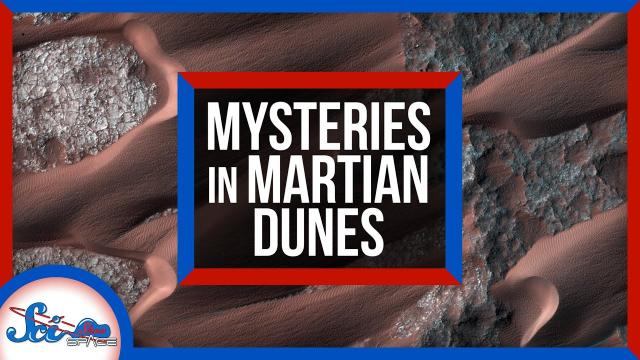
The History Hidden in Martian Dunes
Added 363 Views / 0 LikesGo to http://curiositystream.com/SciShowSpace to start streaming Opportunity: A Life on Mars. Use the promo code ‘scishowspace’ during the sign-up process and you’ll get an annual subscription for just $1.25 per month.The Red Planet was once more like Ear
-
04:29
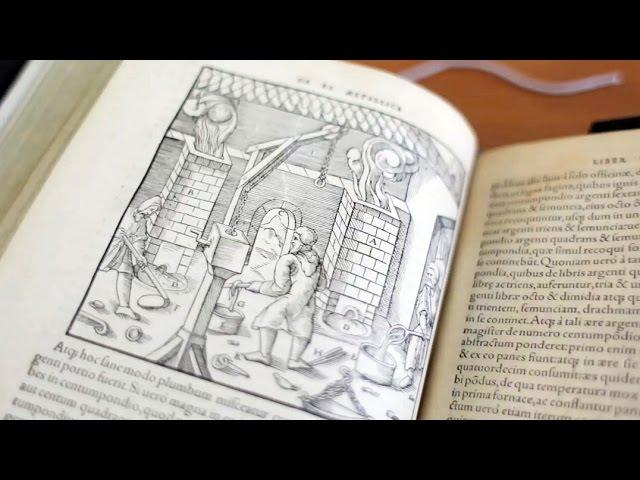
The History of Making Books: Build a Printing Press at MIT
Added 485 Views / 0 LikesThe History of Making Books: Build a Printing Press at MIT
-
05:28

The Hot Mess That Was the Mir Space Station
Added 660 Views / 0 LikesThe Hot Mess That Was the Mir Space Station
-
05:59
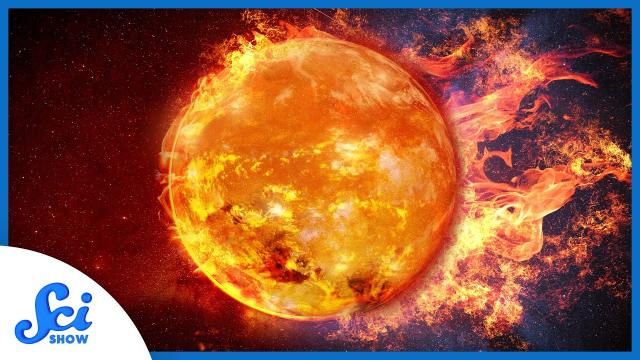
The Hottest Exoplanets in the Universe
Added 226 Views / 0 LikesStart speaking a new language in 3 weeks with Babbel. Get up to 65% your subscription here: https://go.babbel.com/12m65-youtube-scishowspace-may-2022/defaultWith exoplanets, often we want to know if they are Earth-like and whether they might host life, bu
-
05:40
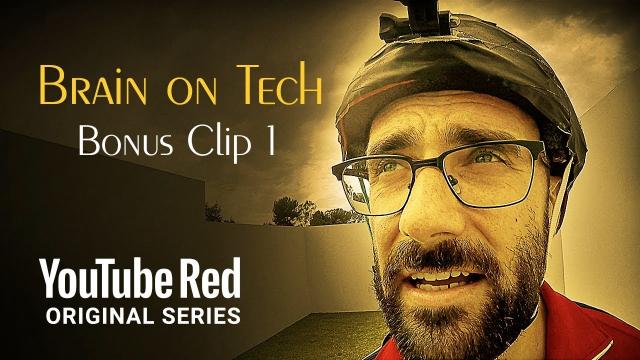
The Human Lab Rat - Mind Field S2
Added 1,143 Views / 0 LikesThe Human Lab Rat - Mind Field S2
-
1:54:17
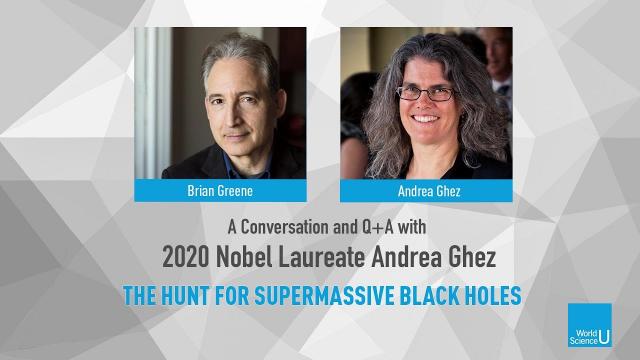
The Hunt for Supermassive Black Holes | A Conversation with Andrea Ghez
Added 315 Views / 0 Likes2020 Nobel Laureate in Physics Andrea Ghez talks with Brian Greene about the details of the long journey to discovering a supermassive black hole in the center of our galaxy and the technological advances that brought her search into clearer focus. Listen
-
08:13
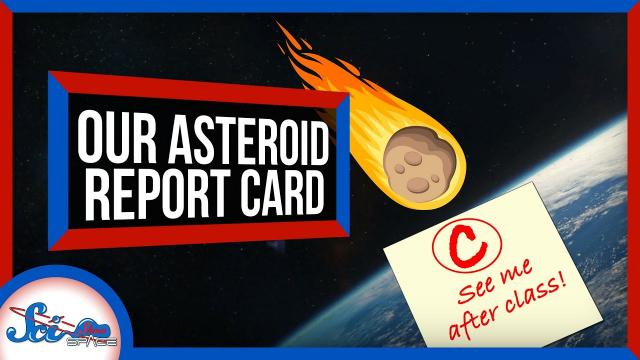
The Imaginary Future Asteroid That Hit NYC
Added 347 Views / 0 LikesLast week, an asteroid impact drill was conducted, which demonstrated what might happen if an asteroid hit us within the decade. It didn't go quite as well as we would like. Host: Hank GreenSciShow has a spinoff podcast! It's called SciShow Tangents. Chec
-
06:27
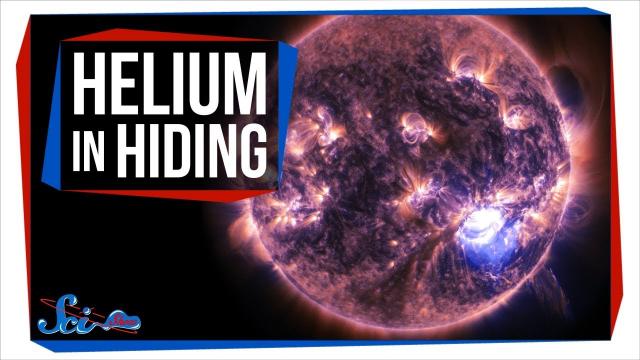
The Impossible Element Hiding in the Sun
Added 446 Views / 0 LikesNot all of the naturally occurring elements were discovered here on Earth. Helium was discovered by examining sunlight, and that same technique is now teaching us about the composition of distant galaxies.Hosted by: Reid ReimersSciShow has a spinoff podca
-
04:10
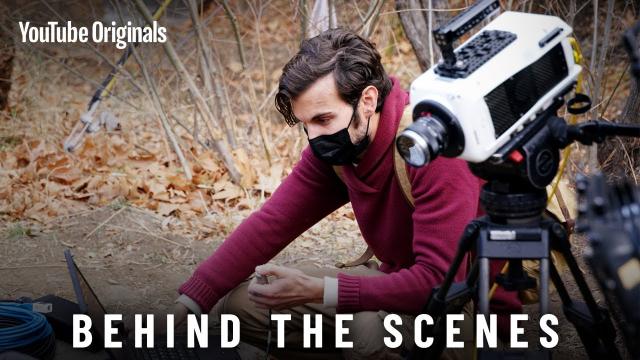
The Incredible YouTubers Who Brought CYSTM: A Quiet Place To Life
Added 249 Views / 0 LikesMain episode: https://youtu.be/ohtrjw0JPK8Meet the wide array of talented YouTube creators & makers we relied on to explore the complex world of sound and hearing (and the other scientific concepts throughout this season).Rikki Poynter: https://youtube.co
-
05:25
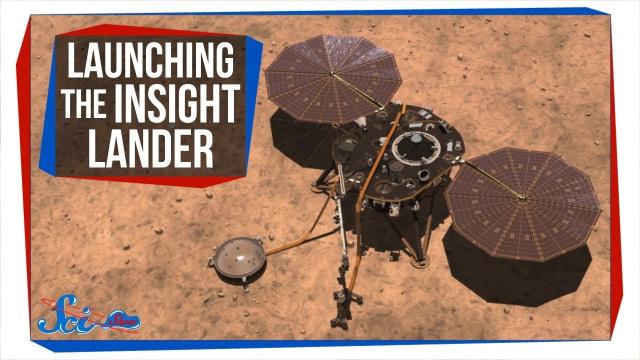
The InSight Lander Is Going to Mars! Here's Why:
Added 553 Views / 0 LikesThe InSight lander is finally launching and headed to Mars, and Hubble has revealed some hot supernova info.For special, curated artifacts of this universe, check out https://scishowfinds.com/Hosted by: Caitlin Hofmeister----------Support SciShow by becom
-
07:05
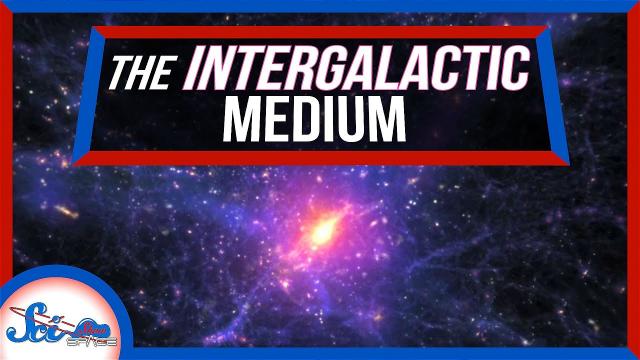
The Invisible Gas That Gave Us Galaxies
Added 375 Views / 0 LikesGet 10% off today —WITH FREE WORLDWIDE SHIPPING—by going to http://ridge.com/SCISHOW and use code “SCISHOW” at check out. More than half of all the matter in the universe is out in the dark, "empty space." Although it's basically invisible, the intergalac

